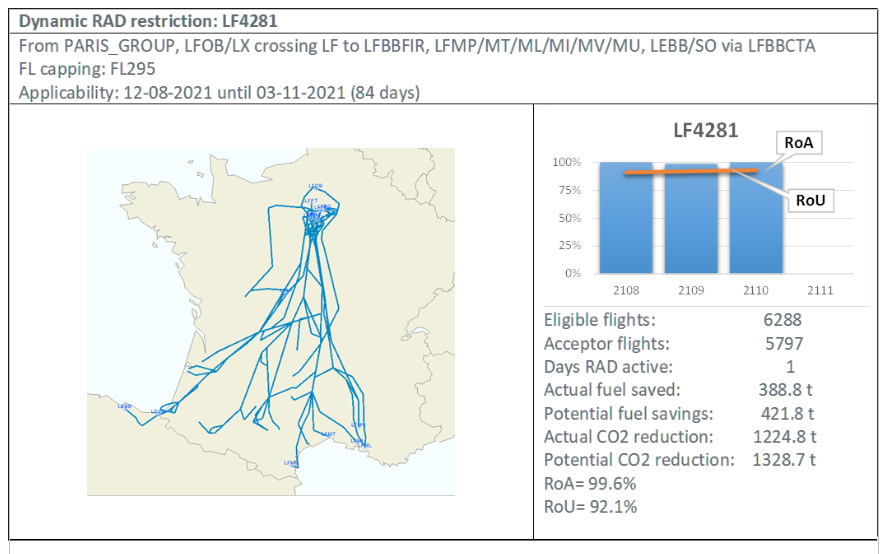Partners in the SESAR 3 JU ALBATROSS very large-scale demonstration have released results from live trials they conducted to dynamically reduce restrictions for flight planning. The trials were part of the consortium’s work to explore and demonstrate in real life conditions the feasibility of implementing the most fuel-efficient flights through a series of gate-to-gate live trials across Europe.
The trials were carried out by EUROCONTROL Network Manager (NM), in close cooperation with air navigation service providers (DSNA, ENAIRE, ENAV, and Skyguide) and fully supported by airspace users. They aimed to validate the concept and to explore the feasibility of disabling restrictions (depending on specific traffic levels) in order to improve flight planning options for airspace users. The operational trials began in August and finished in December 2021.
Although the number of participating ANSPs and selected restrictions were limited, the concept proved its effectiveness. By dynamically relaxing selected restrictions for more than 2,500 flights, per flight an average of 44 kg of fuel has been saved and 138 kg CO2 emissions reduced. These initial results confirm that this improved measure could contribute significantly to lowering aviation’s environmental impact.
The following example shows the results from one of the most used RAD restrictions. The two indicators, “rate of availability” (RoA) and “rate of usage” RoU, demonstrate the potential benefits when a high level of availability matches with the interest of airspace users (AUs) in accepting the improvements for flight plan purposes.

The route availability document (RAD) is a flight-planning document, it facilitates flight planning in order to improve air traffic flow and capacity management while allowing aircraft operators' flight planning flexibility. It also enables ANSPs to maximise capacity and reduce complexity by defining restrictions that prevent disruption to the organised system of major traffic flows. Keeping this in mind when speaking with Giuseppe Acampora Head of Projects Coordination and Implementation Unit at the Network Manager in Eurocontrol, he shared with us the objective of dynamic RAD; “the general idea of dynamic RAD is to use these restrictions in a more dynamic way, introducing a daily management process in order to ensure their utilisation only when necessary.”
“The effectiveness of improvements is determined by the factual involvement of the different stakeholders, both in the preparation and executions. The close cooperation of NM with Albatross partners such as DSNA and Air France proved the possibility to introduce new concepts, like dynamic RAD, in relatively short terms, focusing on concrete aspects for the successfully implementation of solutions contributing to environmental benefits in aviation operations.”
More about ALBATROSS:
www.sesarju.eu/projects/albatross
This project has received funding from the SESAR Joint Undertaking under the European Union's Horizon 2020 research and innovation programme under grant agreement No 101017678
